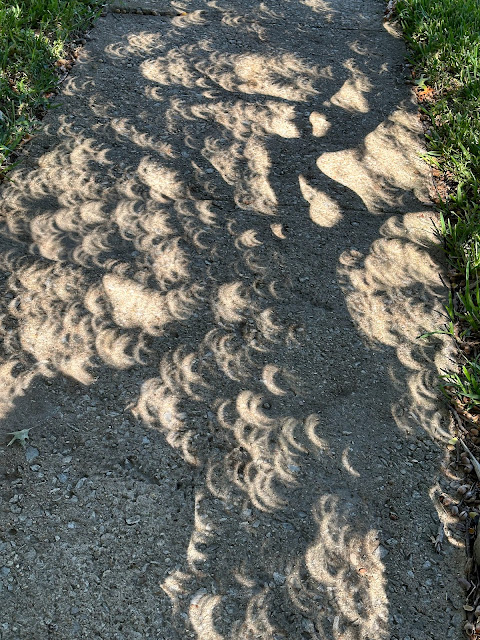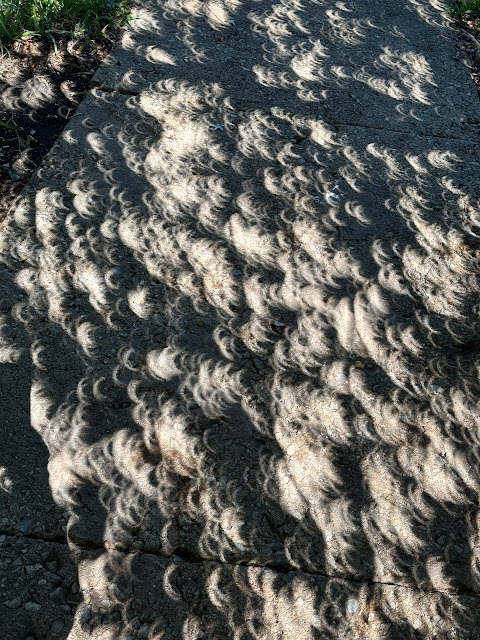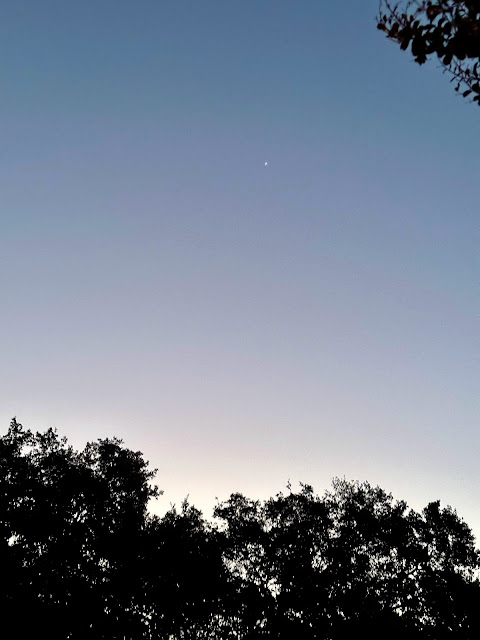 |
Have you ever been afraid of the dark? As a child, were you afraid of monsters under the bed or ghouls in the closet? Or perhaps you are not afraid of the absence of light but of the dark night of the soul, the three-o’clock bleakness of spirit?
You may know the author Lucy Maud Montgomery from her character Anne Shirley. In another series, her character Emily Starr experienced these “white nights,” as she called them, at times of loss and momentous decisions. Here is one typical description:
“Woke up at three and couldn't even cry. Tears seemed as foolish as laughter—or ambition. I was quite bankrupt in hope and belief. And then I got up in the chilly grey dawn and began a new story. Don't let a three-o'clock-at-night feeling fog your soul."
"Unfortunately there's a three o'clock every night," said Teddy. "At that ungodly hour I am always convinced that if you want things too much you're not likely ever to get them” (L. M. Montgomery, Emily’s Quest).
F. Scott Fitzgerald used the same metaphor years later in The Crack-Up:
Now the standard cure for one who is sunk is to consider those in actual destitution or physical suffering—this is an all-weather beatitude for gloom in general and fairly salutary day-time advice for everyone. But at three o’clock in the morning, a forgotten package has the same tragic importance as a death sentence, and the cure doesn’t work—and in a real dark night of the soul it is always three o’clock in the morning, day after day.
Or perhaps you have said with the late Rich Mullins, “When I wake up in the night and feel the dark/It’s so hot inside my soul, I swear there must be blisters on my heart” (“Hold Me Jesus,” from A Liturgy, A Legacy, and a Ragamuffin Band).
Have you known that feeling? I suspect many, if not most, of us have in the last four years.
When you are afraid of the dark, whatever kind of dark it is, what do you want? For myself, I think I want two things: a light and a person, specifically someone bigger and stronger than me. A protector. A champion.
King David, ruler of Israel three millennia ago, would have been on friendly terms with the night and constellations from his youth as a shepherd. He had faced and bested the wild things that might seize the darkness to prowl and pounce on the sheep he kept. But I suspect there were many other nights alone with flock and stars, with perhaps a stone for his pillow and his harp for refreshment.
David, however, knew many, many spiritual and emotional dark nights. He faced attacks from enemies, betrayals from friends, consequences of his own lost spiritual battles, tragic sins among his children, and even a coup by his own beloved Absalom, Absalom, his son.
In Psalm 27, God through David has given us a prayer-song for when we are afraid of the dark. Whatever kind of dark. In these verses, David seeks shelter in God’s personal presence with confidence borne out of His past rescues. Like me, he seems to seek God’s light and His protection.
As I have prayerfully pondered this passage, I see five sections. The first four sections each begin with statements of David’s relationship with God and conclude with a declaration of trust. The final section consists of a single verse that captures David’s counsel to his own heart. In verses 1-3, David describes his experience of God’s saving defense; in verses 4-6, David describes his expectation of God’s sheltering presence; in verses 7-10, David pleads for God’s presence; and in verses 11-13, David pleads for God’s protection. Alternately, verses 1-6 describe David’s experience and expectation of God’s protection, and in verses 7-13 David pleads directly to God for His protective presence. In the concluding section, verse 14, David counsels his heart toward courage.
In the coming posts, we will seek to work through these verses one section at a time and conclude by asking and answering the question of what difference this makes in our own dark nights. For the moment, I will offer you this: the sun has not abandoned us at 3AM, and it has not failed when a solar eclipse blocks its light at midday. The sun still shines and radiates heat, even when we cannot see it. The difficulty is that something has come between us temporarily and hidden it from our view. Yet it always returns and always will until that great Day when we will no more need sun or moon, for the Lord our God will be our light in the eternal nightless city.
In the dark, faith waits in expectation of the light’s return. Faith holds fast to the hope that the light remains even when we cannot see it. Sometimes we grow weary of the waiting, and our faith and hope waver. In those seasons, this Psalm reminds me to remember the times the light previously shone out of darkness, both in my own life and in the lives of other people of faith, past and present. Remembering yesterday’s light sustains me in today’s darkness with hope light may return as soon as tomorrow.
Will we let God’s mysterious hiddenness drive us from Him or drive us to seek His face even more? Hudson Taylor, the pioneer missionary to inland China, said this: “It does not matter how great the pressure is. What really matters is where the pressure lies—whether it comes between you and God, or whether it presses you nearer His heart.”
My heart says of you, “Seek his face!”
Your face, Lord, I will seek.
Psalm 27:8
Before the next post in this series, I suggest that you take time, if possible, to read or listen to the whole of Psalm 27 at least once. As we go on, I will provide the Bible text in shorter segments to keep it before our minds for our reflections. With the final post, I intend to provide the option to download a PDF document of the whole series in one place.
Courage, dear hearts!



